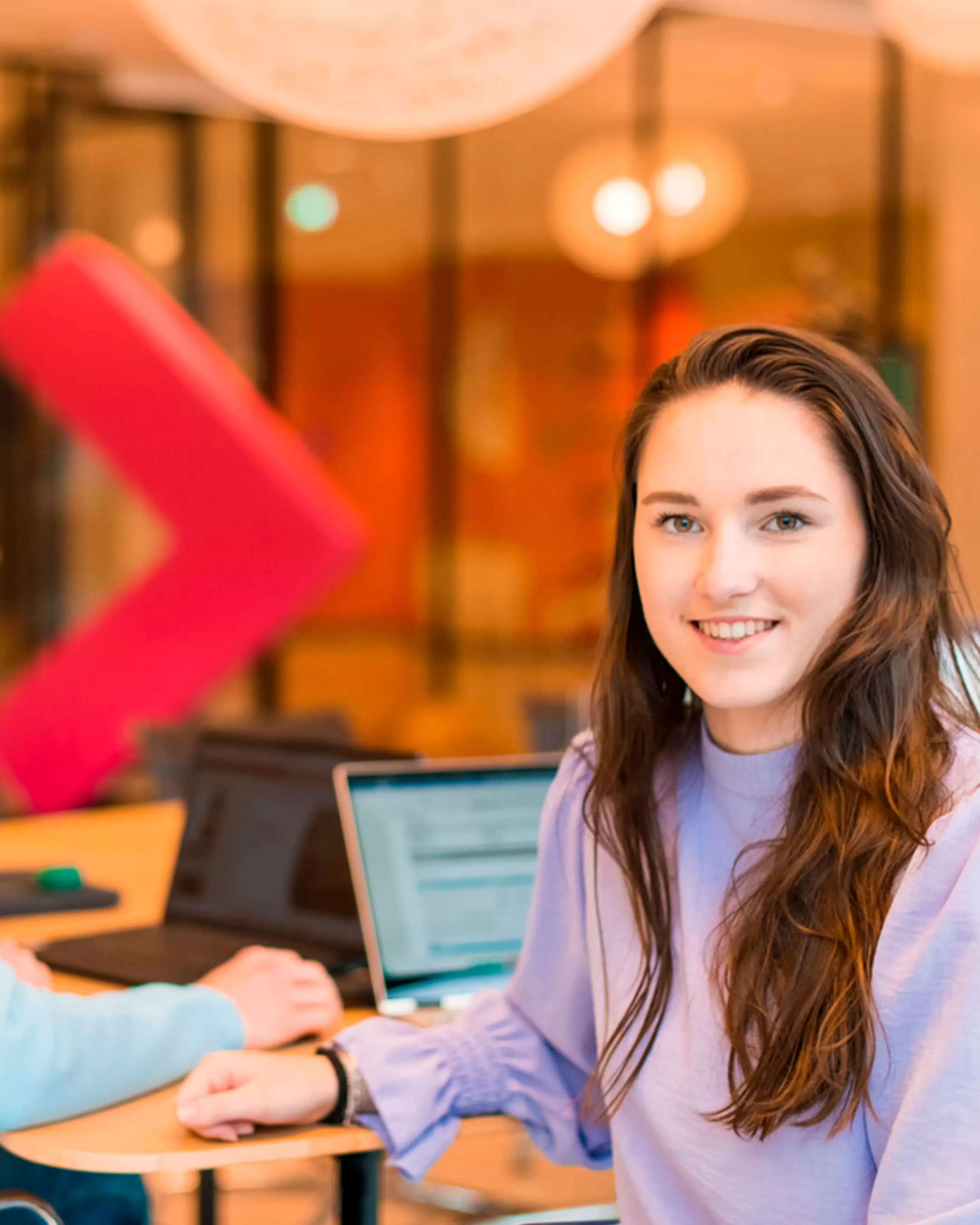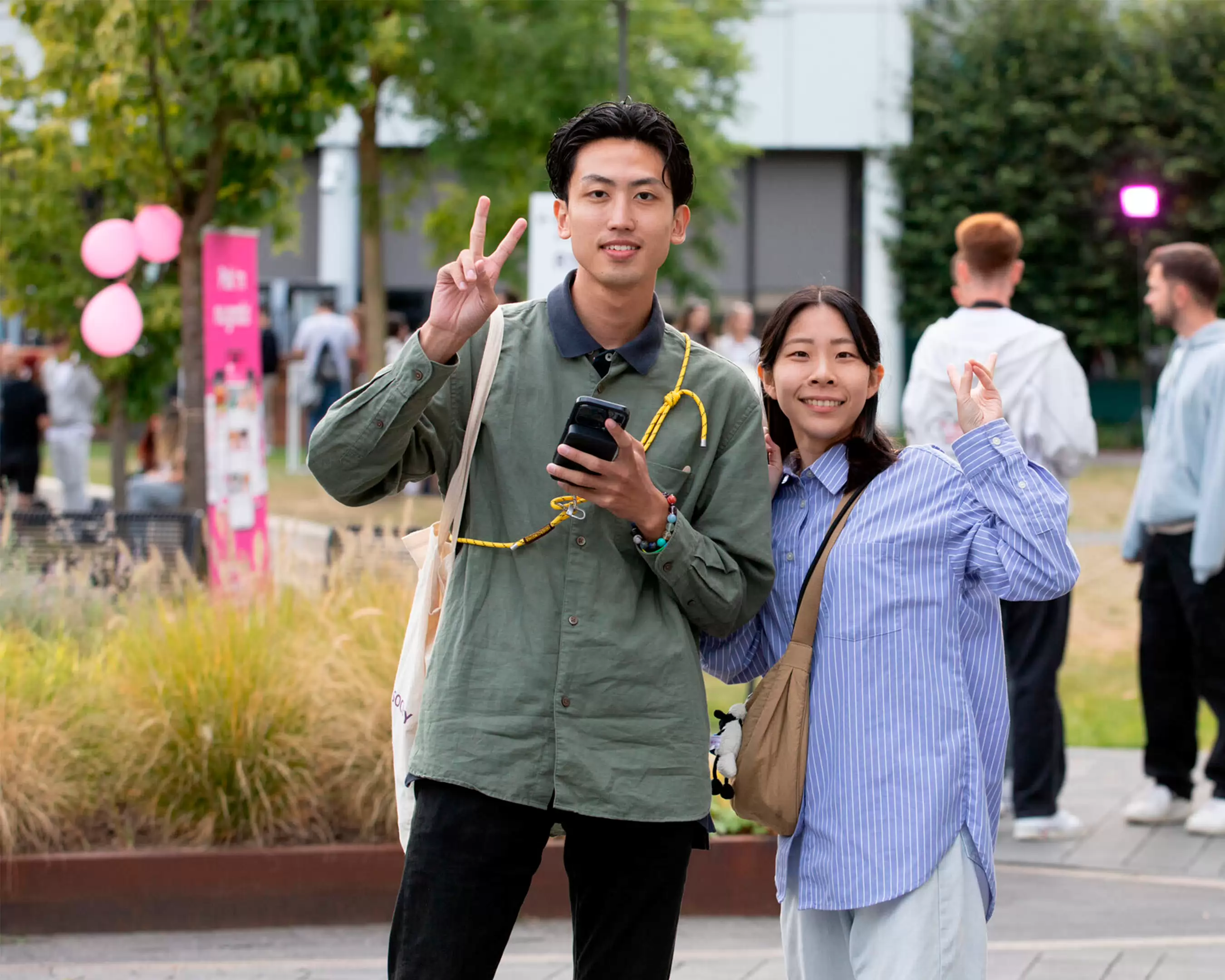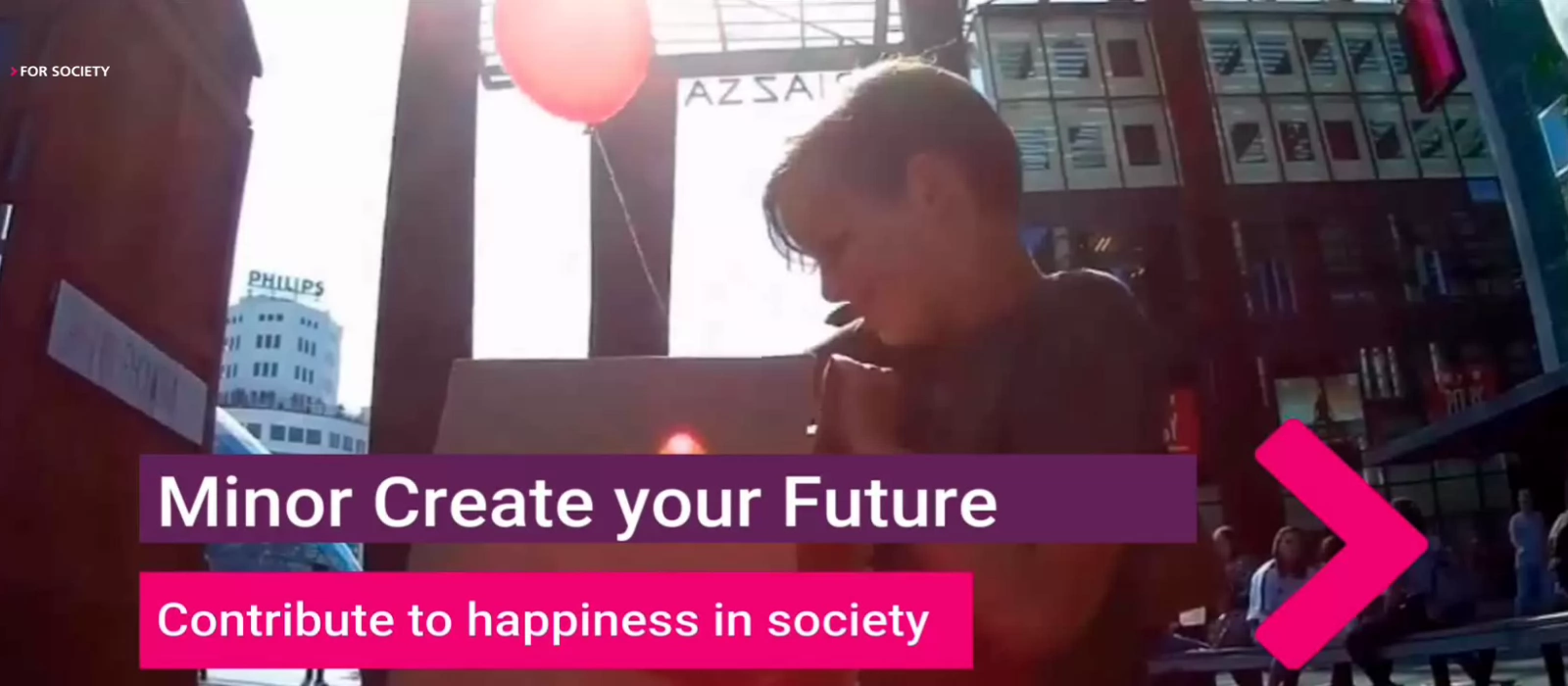

Create Your Future (Eindhoven)
About the exchange programme
Join the minor Create Your Future to shape your career and personal development. You’ll learn how to make smart choices about internships and jobs. How to develop skills in career planning, mental health, intercultural awareness and more. You’ll work on assignments both alone and in groups, creating a portfolio that shows your development. Get ready to make a positive contribution to society and shape your future towards fulfilment!
Why this programme?
- An international lecture room in a friendly and safe community;
- A portfolio assessment to track your personal and professional development;
- Committed and inspiring teachers;
- Focus on you as an individual through personal coaching.
More about the minor
Join a class of 20 where everyone learns from each other in a safe place. Work together on projects that contribute to people's happiness, such as the Happy Phone Booth. Improve your skills and grow as a future professional.
- Understand and articulate your values, experiences, strengths, and growth areas;
- Recognize and navigate opportunities in various contexts to optimise growth;
- Create a future-focused vision, using self-awareness and opportunities to form adaptive development plans;
- Contribute to personal and societal growth through proactive participation.
For who?
The programme is available for international students and professionals, as well as Dutch students, who find it interesting to study in an international and intercultural environment.
We expect you to:
- Be eager, curious and open to learn new talent skills
- Care and practice kindness: ‘you are ok, I am ok’
- Dare and practice leadership: ‘courage over comfort’
- Be committed and present
- Ask for what you need or where want to know more about
- Have a good command of the English language, equal to IELTS 6.0/TOEFL Internet 80
How to apply as an exchange student
Applications should always be submitted via the International Exchange (or Erasmus) Officer at the home university. If several versions of the programme are offered, please indicate for which version you would like to apply to (Programme I, Programme II, Programme III, etc.) This officer will send your application request (nomination) to Fontys. Once Fontys has accepted the application, your Fontys study department will send you a link to a web application called Mobility Online.
Deadline for application
Fall semester: 15 May
Spring semester: 15 November
Note: Not all exchange programmes are available every semester. To find out when this programme is offered, please check its specific details.
How will your course programme be recognised by your home university?
Fontys will provide you with a so-called ‘Transcript of Records’, which will clarify the results that you have achieved. Depending on your results, you will receive a maximum of 30 ECTS credits. ECTS credits are recognised throughout Europe. The agreement between your home university and Fontys University of Applied Sciences will usually include a condition whereby the credits that you obtain will be recognised and transferred into the records kept by your home university.
Practical information
- Start moment(s)
- September, February
- Location
- Eindhoven
- ECTs
- 30
- Language
- English
- Duration
- 1 semester (21 weeks)
- Contact hours
- 20-25 hours per week
For more detailed information about practical matters, such as financial matters, residence permit, health insurance and accommodation, please click on the button below.


